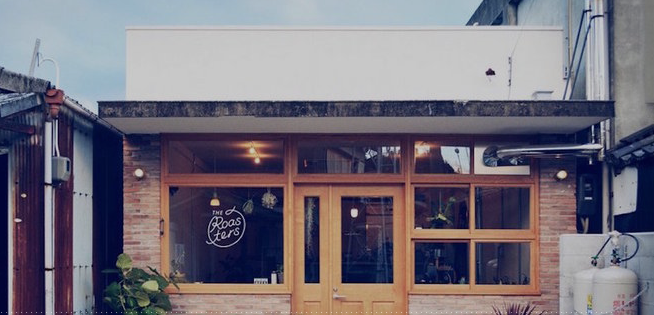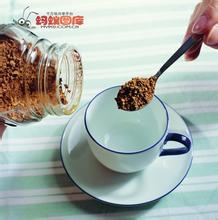Nestle Coffee and JDE Coffee are accused of using "slave" workers to pick coffee beans.
Nestl é and Jacobs Douwe Egberts (JDE), the world's two largest coffee companies, have admitted that their coffee beans may have been picked and harvested by slave workers on Brazilian farms, the Daily Mail reported.
Reported that these slave-like labor income is extremely low, working conditions are poor, but also face the potentially deadly threat of highly toxic pesticides.
Earlier, Dutch media and Danwatch, a research center based in Denmark, revealed in a research report that there were slave-like workers in the Brazilian coffee industry.
After the phenomenon came to light, Nestl é and JDE made a statement acknowledging that the coffee beans may have been made by these workers, while saying that the source of the coffee beans could not be guaranteed because of the "chaotic supply chain" of the coffee industry.
"Blood Coffee"
When workers are short of drinking water and spraying pesticides, there is no protective equipment.
The research center reports that many coffee pickers in Brazil earn little or no pay at all. They live in garbage dumps and are forced to drink the same water as animals because of lack of drinking water. Some of them may be harvesting coffee beans for Nestl é and JDE, which sometimes buy beans from middlemen because of the "chaotic supply chain" of the coffee industry.
This means that the beans used in the coffee you buy from the supermarket are picked by "slave labourers" who are unable to meet their food and accommodation, the report said. These workers do not sign contracts, do not use protective equipment while working, and live in poor living conditions. These situations violate the local laws of Brazil.
In addition, in addition to slave-like working conditions, Brazilian coffee farm workers face a potentially deadly threat. In Brazil, coffee farms can legally spray coffee with pesticides that have long been banned by the European Union because they can cause disease or even be potentially deadly. Some highly toxic pesticides can cause death simply by touching human skin, but many workers do not wear the protective equipment required by law when spraying these pesticides.
The report found that workers complained of numbness in their hands and dull pain in their feet when they slept because they did not wear effective protective equipment.
Scope of influence
Nestle and JDE
Accounts for 40% of the global coffee market
Nestle and JDE reportedly account for about 40 per cent of the global coffee market. The coffee brands of the two companies include Nestle Coffee, Nestle Nespresso capsule Coffee, Qinxin espresso, Jacob Coffee, Maxwell Coffee and so on.
According to the report, the two companies said they could not rule out "human rights abuse" in their supply chain because they did not know the names of all the farms where coffee beans were grown. Nestl é and JDE buy Brazilian coffee beans through exporters, but do not know the names of all the farms that grow coffee beans, and it is difficult to ensure that the coffee beans they buy are not picked by slaves.
It is reported that Nestl é sold some of its coffee products to McDonald's. After being questioned by the group, McDonald's tried to confirm to Nestl é that farms with slave-like working conditions were not in its supply chain. Nestl é replied, "Nestl é does not buy coffee beans from 'blacklisted' farms." but the coffee beans produced by these farms are sold to secondary suppliers, who are in our supply chain. "
The company responded that it would work with suppliers to solve this complex problem.
According to the Daily Mail, Nestl é and JDE admitted that more needs to be done to address the labour problems affecting coffee farming in Brazil, following the Danwatch survey. Nestl é stated that Nestl é is determined to work closely with the contracted suppliers to solve this complex problem. JDE said it was reminded by the survey that it had contacted all suppliers to make sure they did not buy coffee from farms where slave working conditions existed.
The two companies admit that coffee beans from farms on the "dirty list" may end up in their end-of-the-line coffee products. The farms on the "dirty list" were found by Brazilian officials that their employees were working in conditions similar to slaves. In July 2015, Brazilian officials released enslaved workers from the two farms. In response, Nestl é responded by suspending the trading of all goods on the two problematic farms involved until the end of the government investigation.
In a written letter to Danwatch, JDE also admitted that the company could not guarantee that their products did not use coffee beans picked under slave working conditions. "based on the nature of the coffee bean trade, we cannot guarantee that there is no problem of enslaved labour on every farm in Brazil," the company said.
The origin of Nestle mocha in China is unknown in Maxwell, UK.
The reporter saw from the list of coffee products on Nestle's Chinese official website that Nestl é sells "Nestle Coffee" and "Nespezo" two coffee products in China. In Nespezo's description, Nestl é said that each Nespresso coffee capsule is produced in two top production centers in Switzerland.
There are many kinds of Nestle coffee products sold in the official flagship store of Nestle Tmall. In addition, the latest products on the market at the official flagship store include Duoqiu mocha coffee, which is marked as the UK.

Important Notice :
前街咖啡 FrontStreet Coffee has moved to new addredd:
FrontStreet Coffee Address: 315,Donghua East Road,GuangZhou
Tel:020 38364473
- Prev

This small coffee shop run by husband and wife in Japan won a big prize for its unconventional packaging design.
Ken Kamiya is a furniture designer who grew up in Wakayama Prefecture on the south coast of Honshu, Japan. Later, because of his work, he moved to Fukushima
- Next

Heilongjiang "Coffee" goes to South America to grow Coffee beans: to build Chinese Coffee Brand
Chinanews.com, Harbin, Feb. 22 (Shi Yifu)-on the 22nd, the Heilongjiang Coffee Industry and Communication Alliance announced that the alliance decided that six of its member units would go to Argentina to grow coffee beans, and then make use of Brazilian baking technology to create their own coffee brands that are sold back to China. In the past three years, Harbin, the capital of northern Xinjiang, has settled in more than 400 cafes of all kinds, and the coffee has disappeared every month.
Related
- Got entangled?! Lucky opens a new store, Mixue Ice City, and pursues it as a neighbor!
- How long is the shelf life of high-quality hand-brewed hanging ear coffee? Why is the taste period of hanging ear coffee ground into powder only one month?
- Why does hand-brewed espresso smell good but taste bitter? Is the flavor of high-quality hand-brewed coffee aroma or taste?
- Special treatment? COSTA's China business was evaluated separately!
- Match with Xi Tea?! Lucky will launch the new "Snow Cheese Grapes"
- What is the recommended proportion of water temperature and grinding time for hand-flushing Huakui coffee beans? What parameters should be used for cold extraction and cold brewing hand-brewed Huakui coffee?
- Share the most detailed golden formula for cold extract coffee making on the whole network! What proportion of ground is used to make cold coffee brewed for several hours?
- What are the advantages of segmented water injection for hand-brewed coffee? How many stages should I fill the water when making coffee and what is the best time for grinding the water temperature?
- What are the water quality requirements for hand-brewed coffee? What water is the best? Why can't coffee machines use pure water to extract coffee?
- Why does it become bitter after making coffee with your hands and letting it cool? What is the difference between the taste of hot coffee and cold coffee? Which is better?

